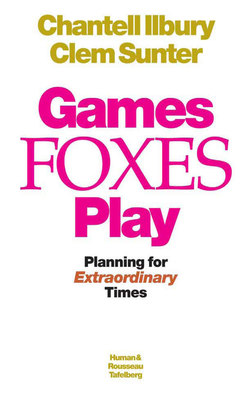Читать книгу Games Foxes Play - Clem Sunter - Страница 6
На сайте Литреса книга снята с продажи.
I Can’t . . . or Can I?
ОглавлениеFour things I’d been better without
Love, curiosity, freckles and doubt.
DOROTHY PARKER
How often do you change your mind? What causes you to change it? Perhaps a newspaper article, except we tend to read newspapers which accord with our views. Maybe an office memorandum, except they are usually as dull as ditch-water and are ignored unless they contain an implied threat. Actually, it is not easy to change somebody’s mind with the written word. Occasionally, a book comes along, like Animal Farm by George Orwell, that can do the job. But think about conversation. That can change your mind, especially if it is with people you trust and respect. Their gestures, intonations and emotions add strength to the content of what they are saying. You respond. There is an interplay in which you are an active participant. As a consequence, your opinions of people and the future can change. Your views on politics and the economy might also be amended, though less frequently and perhaps to a lesser degree. On the other hand, your moral and religious beliefs may never be swayed either by the written or spoken word.
This book is about conversation. Indeed, we introduce a model later on which serves as an agenda for a strategic conversation. Any organisation can use it to change its mindset. ‘Change management’ is what some people call it, but to get people to manage differently, you have to change their minds first. Attitudinal shift precedes behavioural change. You will also be introduced to some people who never change their mind. They have an idea and that’s it. We call them ‘hedgehogs’. The majority of Americans love leaders like that – look at the result of the presidential election in 2004. Time named the successful candidate as its person of the year. In fact, the ‘hedgehog model’ underpins much of the management theory taught at Ivy League business schools in the US. There’s even a smash hit in business literature suggesting that only hedgehogs convert from good to great leaders.
But don’t you smell a rat here? On the one hand, we are deluged with books on change, change, change, and on the other hand, we are told that real champions don’t change their minds. So our favourite animal is not a hedgehog, not a rat, but a fox. The rest of the book is about them. ‘Foxes’ do change their minds – when they realise they are wrong about something or something better exists out there. Against devout hedgehogs like Thatcher, Reagan and George W. Bush stand foxes like Nelson Mandela and F. W. de Klerk. If they hadn’t changed their minds, South Africa would never have experienced the miracle that it did. They compromised. By compromising, they won the game.
Thirdly, this book is about games, the games foxes play. Playing games is second nature to all of us. We learn from early childhood how to play games. In fact, life is a game. You’re born, you play the game once, then you die. Unless you believe in reincarnation. In which case, depending on how you performed, you come back as an eagle, a rat . . . or a lawyer!
There’s been a methodology around for years, at the heart of which lies game playing. It’s called scenario planning. Each scenario is a possible outcome to the game. You weigh up the consequences, then you make a move. The military uses this technique. A few businesses do too. But the best example is a country that used scenario planning to improve the quality of its conversation about the future – South Africa. Back to those foxes! They were the transition generation. You can say that South Africans are natural foxes. So are scenario planners. They all have the ability to change their minds; and change other people’s minds as well. Where else than in South Africa would you find ex-Marxists and trade unionists becoming chairmen of some of the foremost companies in the land?
I can’t . . . or can I? Thank heavens, Dorothy Parker admitted to curiosity and doubt. She was a fox, even though she wanted to be a freckle-less hedgehog.
